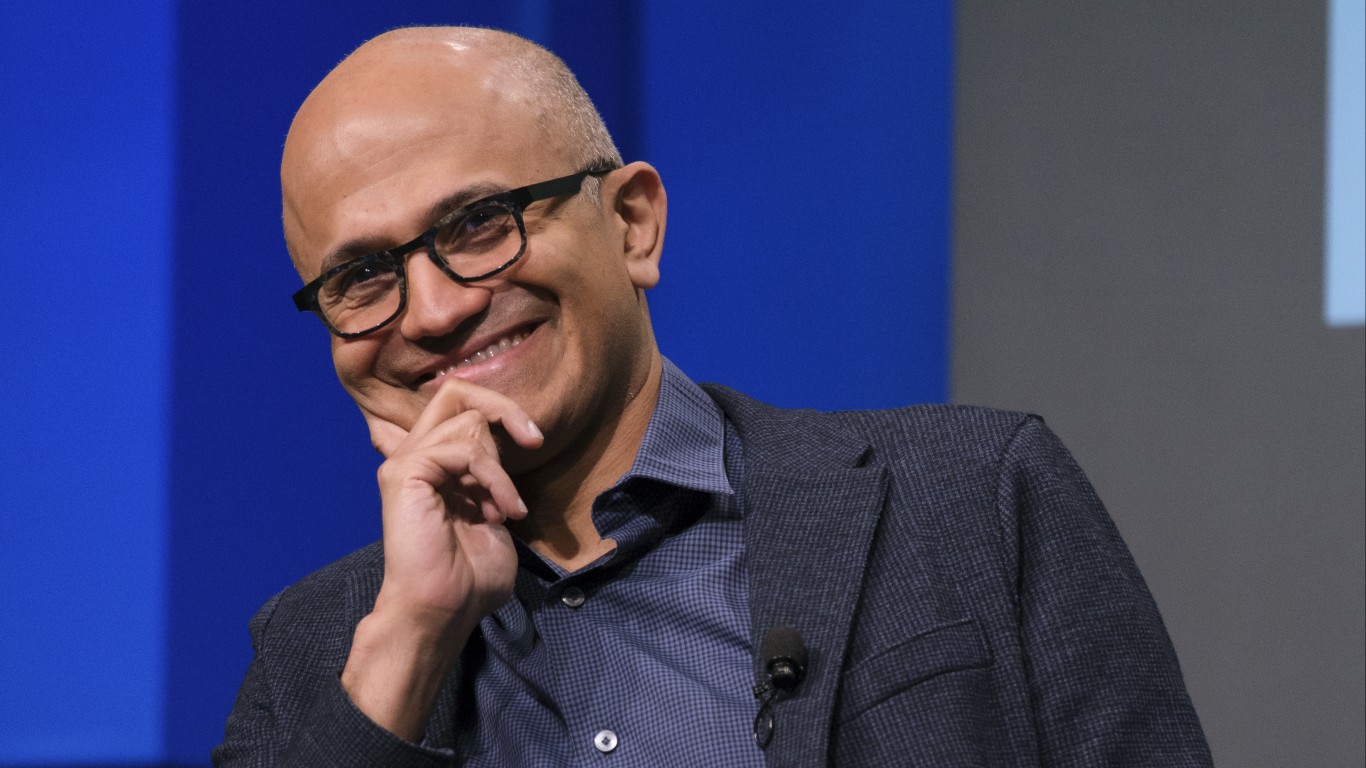Technology
What's Up with Apple: Microsoft Fires Back, iPhone 13 or 12s, and More

Published:

On the same day that Microsoft reached a milestone by closing above a $2 trillion market cap, the company also introduced its next operating system, Windows 11. The big news about Windows 11 is that it will also run Android apps.
That capability gave Microsoft CEO Satya Nadella a chance to throw a little shade on Apple Inc. (NASDAQ: AAPL) and its current battles to protect the iOS ecosystem. According to a report in The Verge, Microsoft is making changes to its app store’s rules to allow the downloading of Android apps and, more important, to allow apps to use their own payment systems. This requirement that all payments go through Apple’s own payment program has been the main complaint against the company.
Casting Microsoft as a protector of social values, Nadella said, “A platform can only serve society if its rules allow for this foundational innovation and category creation.” The Verge’s Dieter Bohn comments:
It’s a truism that, in tech, the underdog always calls for openness until they’re the top dog — and Microsoft’s app store is definitely the underdog. But just because a critique is opportunistic doesn’t mean it’s not correct.
While not a direct response to Nadella’s comments, Apple’s head of user privacy, Erik Neuenschwander, told Fast Company that sideloading, i.e., downloading apps from a non-App Store site, does not enhance consumer choice:
Sideloading in this case is actually eliminating choice. Users who want that direct access to applications without any kind of review have sideloading today on other platforms. The iOS platform is the one where users understand that they can’t be tricked or duped into some dark alley or side road where they’re going to end up with a sideloaded app, even if they didn’t intend to.
Android devices allow sideloading apps — and malware associated with Android is a much more serious problem than it is with iOS. Although, the problem may be not as bad as Apple CEO Tim Cook recently charged.
With many eyes trained on what new products Apple intends to introduce this fall, analyst Katy Huberty of Morgan Stanley has weighed in. Whether or not the next iPhone is designated as an iPhone 13 or an iPhone 12s, Huberty believes that the device due this fall will be a half-step update like previous iPhones designated as 4s, 5s, etc.
Huberty is not worried about a revenue decline despite Apple’s regulatory scuffles, supply chain issues, drop in sales as people return to their pre-pandemic offices, or the half-step update that some investors view as a negative. In a Thursday research note reported in Barron’s, Huberty wrote:
Investors are concerned about Apple’s fiscal 2022 growth prospects, given the expectation for an iPhone s-cycle and waning cyclical work from home tailwinds. We’re not as concerned and’ see a good long-term buying opportunity.
Huberty maintained Morgan Stanley’s Outperform rating on Apple stock and raised the price target from $161 to $162.
Thank you for reading! Have some feedback for us?
Contact the 24/7 Wall St. editorial team.